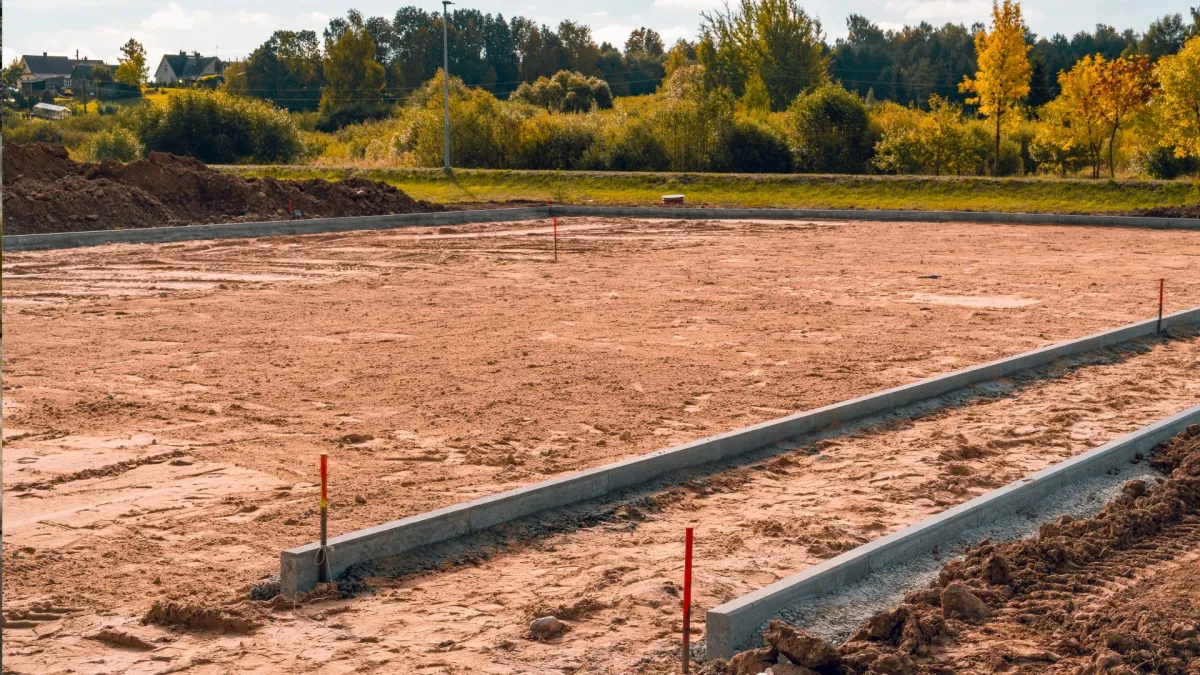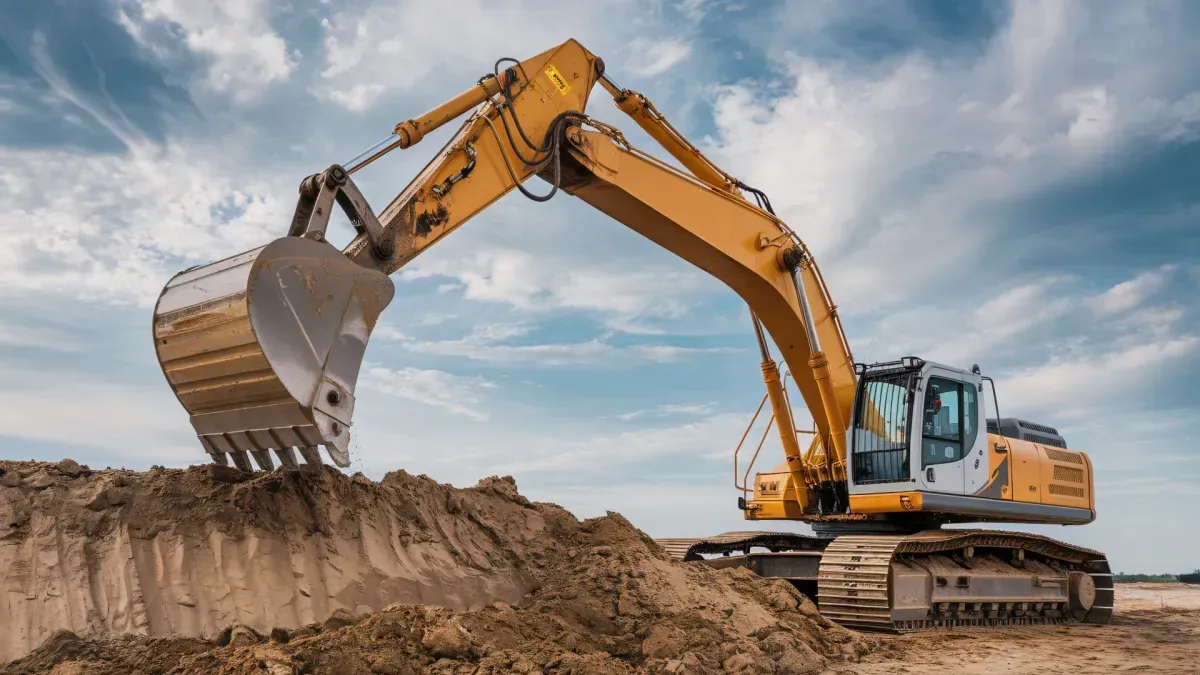
Full Site Preparation Near ,
Introduction: Starting with Your Concerns and Questions
When you start a new construction project, you have a lot on your mind. You’re excited, of course, but maybe you’re also nervous. You might wonder, “Am I prepared for what’s coming?” or “What if something unexpected comes up?” These are very real and understandable worries. Site preparation often feels like one of those things you just can’t afford to get wrong. It’s the critical first step that sets the entire project up for success—or problems.
Maybe you’ve heard horror stories from friends or online forums about projects halted by rocky soil, poor grading, or delays that seemed to last forever. Even if you’re prepared for some obstacles, the sheer number of moving parts in site preparation—excavation, grading, permits—can feel overwhelming. But here’s the thing: while site preparation may be complex, with the right approach, it doesn’t have to be a source of stress.
This guide is here to help you understand what you’re dealing with, what to expect, and how to make the right choices. We’re not here to sell you services you don’t need. Instead, we’re here to make sure you feel confident, informed, and supported as you embark on this exciting journey.
How Can We Help?

is Committed to superior quality and results!

AVOID COSTLY MISTAKES:
Do NOT hire an excavating contractor without first reading our free guide:
The ULTIMATE Excavation & Septic "Success Guide."


Why Site Preparation Matters for Your Project
Site preparation is more than just clearing a plot of land—it’s creating the foundation upon which everything else will stand. This is the phase where the land is assessed, leveled, cleared, and prepped to support your vision. From removing obstacles like rocks and trees to ensuring the ground can properly support the structures you have planned, site prep is essential.
Why Skipping This Step Can Cost You Big
Skipping or skimping on-site preparation can lead to costly problems down the line. Poorly prepped land can cause foundation shifting, drainage issues, and even structural damage. These issues often don’t show up right away, but when they do, they can be incredibly expensive to fix. Think of site preparation as an investment in peace of mind—it’s ensuring your project is built on solid ground.
Common Challenges in Site Preparation
The Surprises Underneath: Soil, Rocks, and More
Every piece of land has its quirks. You might run into unexpected rocks, clay-heavy soil, or even moisture levels that require drainage solutions. Soil tests, which measure things like soil composition and moisture levels, can help identify these challenges early.
Navigating Permits, Regulations, and Red Tape
Permits and local regulations can be a time-consuming part of site prep, but they’re critical for ensuring your project is safe and up to code. From environmental impact assessments to zoning restrictions, being prepared to handle the paperwork can save headaches later. If this sounds daunting, it’s something a professional team can manage on your behalf, ensuring that everything goes smoothly and complies with local laws.
Site Preparation Costs: What to Expect
Breaking Down Costs by Project Size and Scope
Site preparation costs vary widely based on project needs, land conditions, and the services required. A small residential project will generally cost less than a commercial site with extensive leveling, trenching, or drainage requirements.
Factors That Influence Site Prep Costs (And How to Control Them)
Factors like land slope, soil type, required permits, and specialized services (like drainage or grading) can all affect cost. However, you can manage costs by planning for only what you need. A consultation with a site prep expert can clarify which services will deliver the best value for your project.
See Our

✔️ Commercial Excavation
✔️ Residential Excavation
✔️ Demolition - Smaller Sheds, Barns , Mobile Homes, Single Family Homes
✔️ Dozer Work
✔️ Septic System Pumping
✔️ Septic Installs Traditional Systems
✔️ Septic Tanks - Plastic/Poly
✔️ Septic Tanks - Concrete
✔️ Septic Tank Installations
✔️ Septic Pumps And Septic Alarms
✔️ Pump Replacement
✔️ Lift Stations
Quality Services Launched FAST!

✔️ Drain Field Replacement
✔️ Forestry Mulching
✔️ Grading
✔️ Lot Clearing
✔️ French Drains
✔️ Sewer Repairs
✔️ Camera Inspections
✔️ Pipe Jetting And Thawing
✔️ Drainage Systems
✔️ Full Site Preparation
✔️ Grease Trap Pumping
✔️ Grease Trap Repairs
✔️ Grease Trap
✔️ Land Clearing
What Are You Waiting For?
Site Preparation Methods and Techniques
Clearing, Grading, and Excavation Explained
Clearing involves removing vegetation, trees, rocks, and other obstacles from the site. Grading reshapes the land, creating an even surface and aiding in water drainage. Excavation, which often follows clearing and grading, digs into the land to set foundations, install utility lines, or create access paths.
Specialty Services: Drainage, Utility Trenching, and More
Specialized services might include trenching for utility lines, installing drainage systems to manage water runoff, or prepping land for landscaping. These tasks ensure your land functions as intended without surprises that could impact the final build.
Site Preparation: DIY vs. Hiring Pros
When DIY Might Make Sense
Small-scale projects, like minor clearing, could be DIYed if you have the right tools and time. However, even small projects can become complex. Be cautious of diving in without the right equipment, experience, or permits.
Why Professional Site Prep Often Pays Off in the Long Run
Hiring professionals isn’t just about heavy machinery; it’s about ensuring the project meets safety, structural, and regulatory standards. Experienced site prep teams bring a depth of knowledge to the table, handling tasks that can be hazardous or technically demanding.
How to Choose the Right Site Preparation Company
What to Look for in a Contractor
Choosing a contractor who understands your specific needs is critical. Look for teams that prioritize listening, planning, and transparency. A good contractor will not only deliver results but keep you informed every step of the way.
Reading Between the Lines: How to Use Reviews and Referrals
Reading reviews and seeking referrals from previous clients can provide valuable insight. Look beyond star ratings and focus on feedback about reliability, communication, and quality of work.
The Best Time to Start Your Site Preparation Project
Seasonal Considerations for Optimal Results
Weather plays a huge role in site prep. Early spring or late fall can be ideal times, depending on your region, as they often provide the right balance of workable soil and dry conditions.
How to Plan for Unexpected Delays
Weather delays are often unavoidable, but planning ahead and building in a time buffer can keep your project on track. Open communication with your contractor is key—when everyone’s on the same page, it’s easier to handle changes.
Hours:
Extended hours by appointment only.
Address: